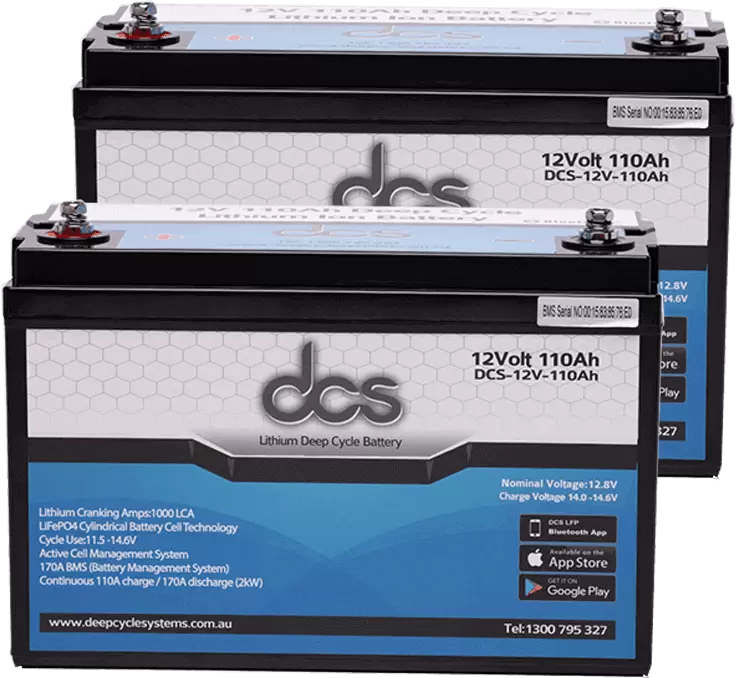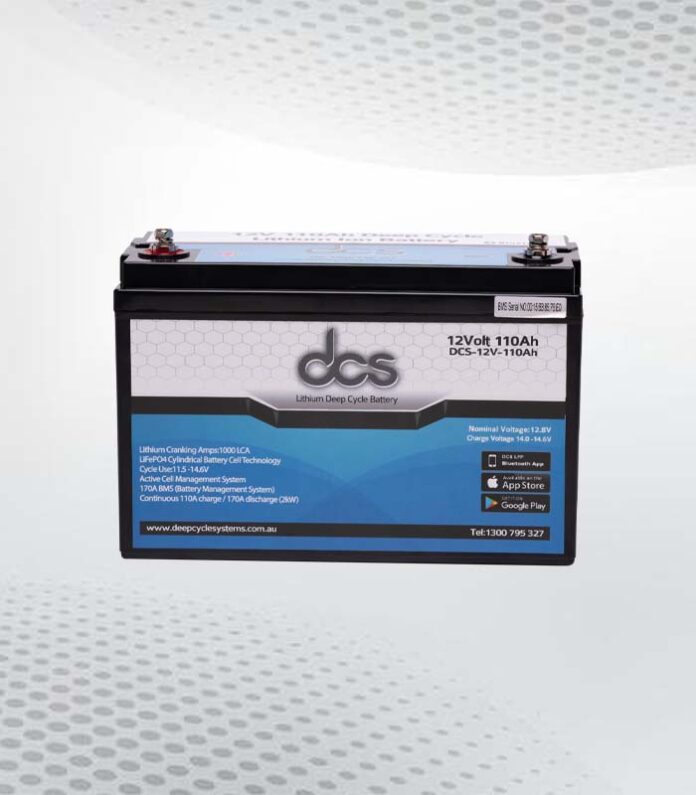Lithium Battery is widely used in many fields, such as electric vehicles and energy storage systems. The lithium battery can be divided into the all-solid-state battery and lithium-ion battery. It has the advantages of high energy density, long cycle life, and low internal resistance and so on. It has many types of specifications according to its usage conditions.
The Energy Density Of Lithium Batteries Is The Highest:
The energy density of Lithium Batteries is the highest among all available battery types. Energy density is the energy stored in a battery per unit volume or unit weight. For example, if you have an 80 Whr (Watt-hour) capacity lithium battery, it implies that your 80 Whr battery can power your laptop for approximately one hour without recharging it. The average energy density of a lithium-ion battery ranges between 200-300Wh/kg at room temperature, while alkaline batteries have only 100Wh/kg and lead acid batteries less than 70 Wh/kg.
 Lithium batteries also have higher specific power than other types of batteries. It means they are more suitable for high-current applications where large amounts of the current need to be discharged quickly, such as electric vehicles (EVs). The high specific energy, high power and long cycle life of lithium-ion batteries make them suitable for electric vehicles that require fast charging and discharging. Lithium batteries have a longer shelf life than other batteries, like alkaline and lead acid.
Lithium batteries also have higher specific power than other types of batteries. It means they are more suitable for high-current applications where large amounts of the current need to be discharged quickly, such as electric vehicles (EVs). The high specific energy, high power and long cycle life of lithium-ion batteries make them suitable for electric vehicles that require fast charging and discharging. Lithium batteries have a longer shelf life than other batteries, like alkaline and lead acid.
Depth of Discharge:
Lithium batteries are the best choice because they have a considerable depth of discharge. You can use them until their capacity has been almost entirely used up. On the other hand, a lead-acid deep cycle battery can only be discharged to 60%, so it cannot be used for long periods or in continuous use. Replacing your lead-acid battery with a lithium-ion deep-cycle battery will save you money on maintenance and replacement costs because it lasts longer than traditional lead-acid batteries.
Another reason why lithium batteries are the best choice for you is that they have a very high cycle life. It means that they can be charged and discharged thousands of times before their capacity begins to decrease. On the other hand, a lead-acid deep-cycle battery can only be cycled up to 300 times before it needs to be replaced with a new one.
Deep-Cycle Battery Lithium Has A Long Service Life:
Deep-Cycle Battery Lithium are used for cycling in solar power systems, electric vehicles and other fields. Lithium batteries have a long service life and can be charged more than 1000 times. The lithium battery has become an essential part of our daily life, whether a mobile phone or an electric car. The deep-cycle battery lithium battery has a high discharge current, high power and a reasonable self-discharge rate. It is mainly used in solar power systems, electric vehicles and other fields. Lithium batteries have a long service life and can be charged more than 1000 times. The lithium battery has become an essential part of our daily life, whether a mobile phone or an electric car.
It has a high discharge current, power, and self-discharge rate. The deep-cycle battery lithium battery is mainly used in solar power systems, electric vehicles and other fields. Lithium batteries have a long service life and can be charged more than 1000 times.
The Cycle Life Of The Battery Is More Than 2000 Times:
Lithium-ion battery cycles can be more than 2,000 times. The cycle life of lithium batteries is significantly higher than that of nickel-based batteries, and the cycle life of lithium polymer batteries is even greater. Some may think that the number of charge-discharge cycles directly determines the service life of a storm. However, it does not mean that the longer you use your phone or laptop before charging it again, the longer its service life will be.
The reason for this is simple: when you use a device with a battery pack every day and recharge it each time before using it again (even if your device has no problem) but do not fully discharge its power supply after restoring, then this will lead to an increase in self-discharge caused by chemical degradation and corrosion over time; meanwhile, there are a lot of tiny scratches on each electrode surface due to friction during charging/discharging process; these little scratches cause ions moving between electrodes during cycling process which results in capacity decrease over time.
Lithium-Ion Deep Cycle Battery Has High Voltage And Low Internal Resistance:
Lithium-Ion Deep-Cycle Battery have high voltage and low internal resistance. In addition, they also have a high energy density. Therefore, they can power vehicles such as electric cars and buses without worrying about the battery overheating or catching fire. Compared with other rechargeable batteries like lead-acid deep cycle batteries and nickel metal hydride (NiMH), lithium-ion batteries do not require an electrolyte solution when in operation. It means there is no need for maintenance which usually involves adding water every few months when using a lead-acid battery or charging it fully once every few weeks when using a NiMH battery.
Another advantage of lithium-ion batteries is their long lifespan. They can last for more than 1,000 charge cycles, which means they can be used every day for many years without worrying about them not working anymore.
It Has A High Energy Density:
Lithium batteries have a high energy density, meaning they can store more energy per unit volume than other batteries. Also, lithium batteries are better at keeping their charge for extended periods. It makes them ideal for applications where the battery must be able to hold its charge for long periods without being used or charged. It is also safer than other types of batteries. Lithium-ion batteries contain less flammable liquid electrolytes than other lithium-based batteries, making them less likely to catch fire or explode in the event of damage.
A lithium battery is a type of rechargeable battery that uses lithium ions as its active material. Lithium batteries have many applications, including use in portable electronics such as laptops and smartphones. They also have applications in electric vehicles and energy storage systems.
Lithium Deep Cycle Battery Has No Environmental Pollution And No Memory Effect:
Lithium Deep-Cycle Battery are environmentally friendly and do not contain any toxic substances. They are also well-known for their non-explosive characteristics, unlike lead-acid batteries.
What makes lithium batteries so safe? The answer is that they have no memory effect, meaning there is no need to fully discharge them before recharging them as with traditional lead acid batteries. It makes it possible for you to use your solar power system for more time to get free electricity from the sun than ever before! Another benefit of lithium deep cycle batteries is their high energy density. Which means they can store more power than lead acid batteries. It makes them suitable for use in solar power systems, where the more energy you can keep, the longer your system will work before needing to be recharged.
In addition, lithium-ion batteries are more durable than lead-acid batteries. They can withstand up to 1,000 charge cycles without any degradation in performance or capacity. That’s a massive difference from lead acid batteries, which can only withstand about 500 charge cycles before they lose effectiveness.
Lithium Iron Phosphate (LiFePO4) is an unbelievably constant lithium science when contrasted with virtually any kind of remaining lithium sciences. The 48V lithium batteries are collected with an usually safeguarded cathode product (iron phosphate). Contrasted with other lithium scientific researches iron phosphate advancements a strong atomic bond, which stands up to shocking charging problems, drags out cycle life, and also stays on par with synthetic reliability over countless cycles. This is things that provides these batteries their incredible warm dependability, lengthy cycle life, and also durability to mess up. LiFePO4 batteries are not inclined to getting too hot, neither are they organized to ‘cozy widespread’ as well as in this way don’t over-warm or touch off when subjected to comprehensive misusing or cruel environmental problems.
How Lithium battery functions:
Lithium batteries are a gathering constructed of numerous phones, comparable to lead-corrosive batteries and also numerous other battery kinds. Lead harsh batteries have an ostensible voltage of 2V/cell, though lithium battery cells have a plausible voltage of 3.2 V. In this manner, to complete a 12V battery you’ll regularly have four cells linked in a series. 8 cells linked in a series make a 24V battery with an ostensible voltage of 25.6 V as well as sixteen cells connected in a series make a 48V battery with an apparent voltage of 51.2 V. These voltages function admirably with your common 12V, 24V, as well as 48V inverters.
Use of lithium batteries:
Lithium power battery is a battery used on power-driven structure. Contrasted as well as customer lithium bit battery, lithium power battery can be utilized in electrical devices, geographical prospecting, eco-friendly observing, UAV, self-adjusting automobile, and so forth Furthermore, energy stockpiling battery can similarly belong with lithium power battery in the a lot more substantial concept. Contrasted with regular lithium particle battery, 48v lithium batteries are phenomenal prerequisites, like high power density, high volumetric specific energy proportion, vast temperature array, high price releasing, longer cycle life as well as far better safety.
Qualities of lithium batteries (BMS):
The li-particle battery, the board structure is made out of CPU, voltage and temperature level purchase module, current safeguarding module as well as document user interface component. It can identify as well as show the total voltage, full blast current and also capability quantity of lithium particle battery pack. The voltage of any solitary cell and the temperature of the cell box; Maximum and also least battery voltage as well as battery number, the majority of severe and also least temperature level, battery billing and also launching existing. The host device of lithium bit battery in addition offers caution work and also can manage yield interface, which can inform as well as manage return for overvoltage, under voltage, high temperature, reduced temperature level, overcurrent as well as remove. It has RS232 and CAN transport user interface, as well as can straightforwardly read all information on the lithium particle battery the board structure on the COMPUTER.
Conclusion:
Lithium-particle (Li-particle) batteries are used in various items like gadgets, playthings, remote earphones, portable force tools, little and massive devices, electrical automobiles and also electric power stockpiling structures. In case you’re looking for energy stockpiling for your personal neighboring worldly team for framework tie or off-lattice, this 48V lithium battery is an extraordinary option. Profound cycle batteries are a crucial component in off-network sunshine based electric frameworks, and also for latticework tie or dilemma support power frameworks with or without sunlight oriente
This Article Was First Published On
| Other Good Articles to Read |
| Blogs Rain |
| Cme Blog Spot |
| Garcias Blogs |
| Yyc Blogs |
| Guiade Blogs |
| Blogs-Hunt |
| Impact-Blog |
| Smarty Blogs |
| Ed Blog |
| Mo Blogs |
| Blogs Em |



